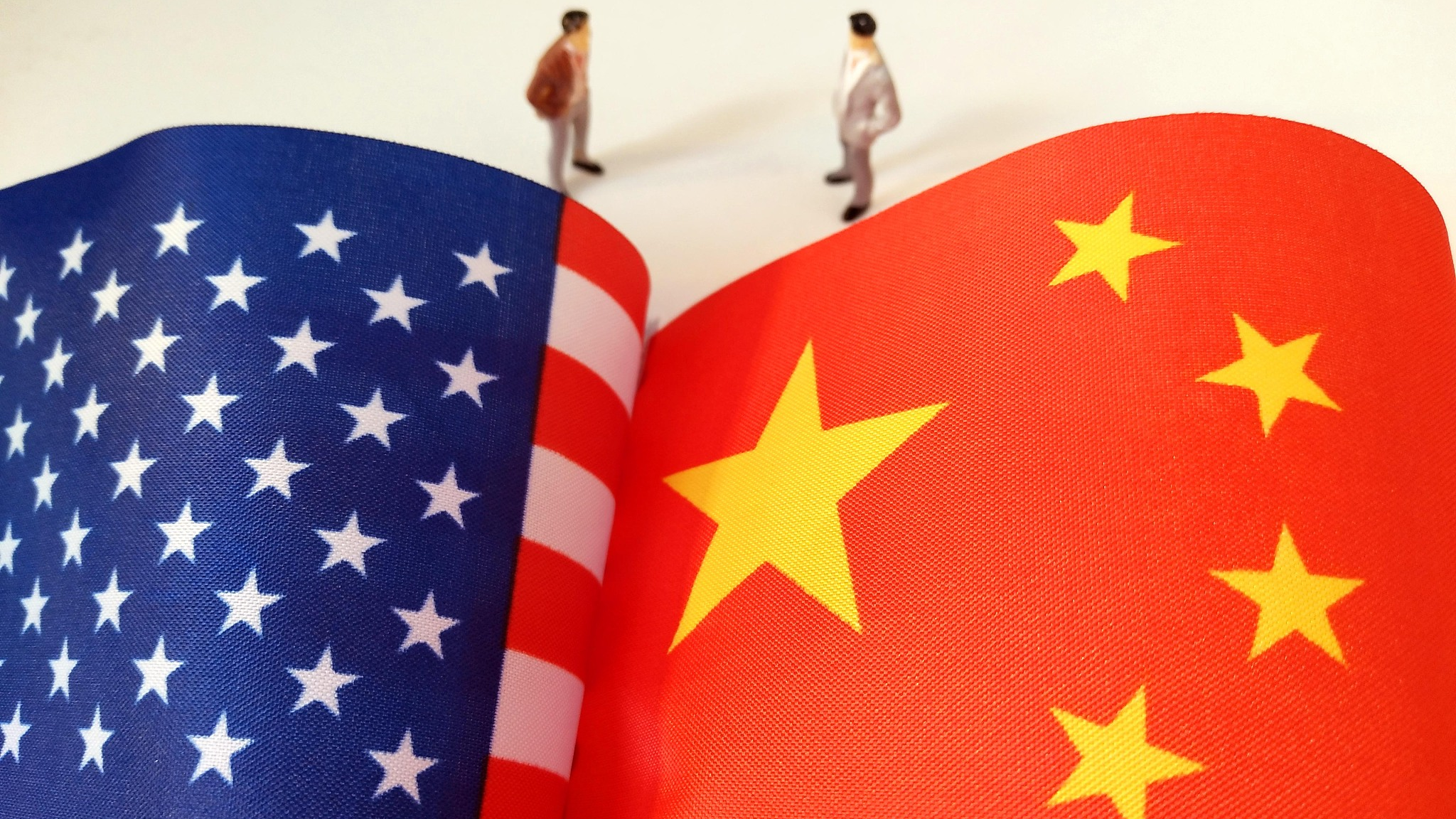
Editor's note: Anthony Moretti is an associate professor in the Department of Communication and Organizational Leadership of Robert Morris University. The article reflects the author's views and not necessarily those of CGTN.
Now and then, the right thing happens, even if a bit too late. One such example took place a few days ago when a group of U.S. professors at Stanford University made a demand of the Joe Biden administration: End the terribly unfair and perhaps even illegal targeting of Chinese scholars working in the United States.
The disgraced Donald Trump administration launched the program called the "China Initiative" in 2018. The Department of Justice defended the initiative, stating it was a "strategic priority of countering Chinese national security threats and reinforces the president's overall national security strategy."
That was nonsense then. It remains nonsense now.
If there were one word to describe Donald Trump's opinion of China during his presidency, it would be envy. Trump could not tolerate the rapid advancements China was making on the global stage; in his warped view of the world, America came first, last and everywhere in between on the greatness scale. No country - especially one from Asia - was going to threaten that.
Therefore, and like so many ideas that sprung from his mind, the initiative was intentionally hostile to China, and more specifically its scholars. Keep in mind that many of these researchers are involved in complex, multi-year projects in the United States that will eventually have benefits for more than just one country.
Sadly, Trump could not understand that, and he took advantage of the notable anti-China hysteria existing in Congress and throughout the United States in pushing his agenda. Few people spoke out against the "China Initiative," and those voices were drowned out by the political elite often working hand in glove with select anti-China news organizations.
Put another way, when Chinese researchers and professors working in the United States became one of Trump's favorite targets, voices of dissent were not regularly heard in mainstream media discourse. (Chinese students in the U.S. also were swept up in Trump's illogical thinking.)
Trump was convinced these scholars had sought to work at U.S. colleges and universities simply because they wanted to steal the ideas, plans or creations of their American colleagues.
Quickly, the administration sought to arrest and charge these Chinese scholars with a host of trumped-up accusations.
One high-profile case is now over, and Trump most certainly would not approve of how it ended.

A few days ago, Chinese scholar Hu Anming was acquitted of the charges facing him. Hu is a nanotechnology expert at the University of Tennessee. The U.S. government accused Hu of not admitting he had ties to the Chinese government when he applied for government funding to work on a National Aeronautics and Space Administration (NASA) project.
The judge determined the government had not proven its case. And that decision emboldened the group of roughly 180 scholars at Stanford to tell the Biden administration that enough was enough.
They are 100 percent correct.
In their letter, shared on a website titled Winds of Freedom, the Stanford scholars remind the White House that the Trump plan "disproportionately targets researchers of Chinese origin. Publicly available information indicates that investigations are often triggered not by any evidence of wrongdoing, but just because of a researcher's connections with China."
The scholars acknowledge another reality of the initiative: racial profiling. They state such profiling "even when undertaken in the pursuit of justice is both inconsistent with U.S. law and with the principles underlying our society."
They conclude that continuing to interfere with Chinese scholars who are teaching and researching in the United States will have a chilling effect on other international scholars, who might fear facing legal scrutiny simply because of the work they undertake.
It is a shame that it took until now for faculty at one of America's most respected universities to speak out against the "China Initiative." Remember, Biden was sworn in as Trump's replacement almost nine months ago. Granted, while it might have made sense to wait for Hu's case to work its way to a conclusion before making any kind of public statement, the silence from the higher education community for so many months was inappropriate.
Let's be honest here: If an American scholar was placed in a similar situation in any country around the world, the academy would not wait more than 200 days before loudly and consistently speaking out in support of their colleague.
Although mine is only one voice, I have written and spoken often about the need for colleges and universities in the U.S. and China to lead the way in promoting cultural and educational exchanges between our countries.
We must use our clout to ensure a community with a shared future. We in the U.S. who host our Chinese counterparts must ensure they are treated with collegiality and respect, a reception we know we would receive in China. And we must never stay silent when our colleagues are treated unjustly.
(If you want to contribute and have specific expertise, please contact us at opinions@cgtn.com.)

